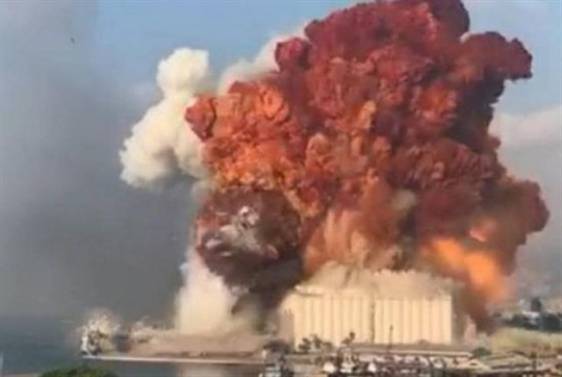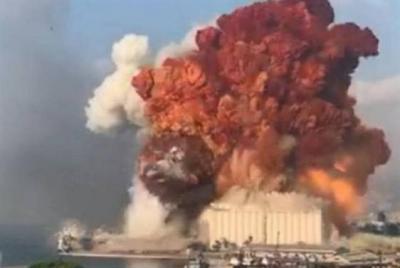Lebanon will commemorate the third anniversary of the Beirut port explosion tomorrow, Friday, which resulted in the deaths of at least 220 people, injured thousands, and destroyed vast areas of the city. Despite all this devastation, the investigation has not led to the accountability of any high-ranking official. Here is a summary of what happened and the obstacles that hampered the investigation:
* **How did the explosion occur?**
The explosion occurred after 6 PM on August 4, 2020, due to a fire in a warehouse containing hundreds of tons of ammonium nitrate. This quantity was originally destined for Mozambique on a ship chartered from Russia and had been in the port since 2013 after its cargo was unloaded during an unplanned stop. No one came forward to claim the shipment, which became embroiled in a legal dispute over unpaid port fees and defects. The U.S. Federal Bureau of Investigation (FBI) concluded that the amount of ammonium nitrate that exploded was one-fifth of the total quantity of 2,754 tons that had been unloaded in 2013, raising suspicions about the disappearance of a significant part of the shipment. The explosion was so powerful that it could be felt 250 kilometers away in Cyprus, releasing a cloud reminiscent of nuclear blasts.
* **Who knew about the chemicals?**
High-ranking Lebanese officials, including then-President Michel Aoun and then-Prime Minister Hassan Diab, were aware of the shipment’s existence. Aoun stated shortly after the explosion that he had asked security authorities to "do what is necessary" upon learning about the chemicals. Diab claimed he was "at peace with his conscience." Human Rights Watch reported in a 2021 report that senior security and government officials "were aware of the great danger to life... and implicitly accepted the risk of fatalities."
* **Obstacles to the investigation**
The ruling parties and their sects have significant influence over the judiciary, an issue acknowledged by Lebanon's chief judge in 2022. Justice Minister Fadi Sawan appointed a chief investigator shortly after the explosion. In December 2020, Sawan charged three former ministers and Diab with negligence, but faced strong political resistance. He was removed from the case in February 2021 after former ministers Ali Hassan Khalil and Ghazi Zaiter complained that he had exceeded his authority. Tariq Bitar, Sawan's successor, sought to question prominent figures including Khalil and Zaiter. All denied any wrongdoing, and the investigation stalled after suspects demanded Bitar's dismissal, claiming bias and errors. The judges who were supposed to rule on these complaints left the judiciary in 2022 without appointing successors, leaving the investigation's fate uncertain. In early 2023, Bitar unexpectedly resumed his investigation and charged other officials including General Security Director Abbas Ibrahim. However, the Lebanese Attorney General accused Bitar of potential overreach and ordered the release of those detained since the explosion, including the former head of the Beirut Port Authority, further halting the investigation.
* **Hezbollah's role**
Hezbollah denied accusations of controlling the port or storing weapons there and launched a campaign against Bitar as he sought to question their allies. In 2021, a Hezbollah official warned Bitar that the group would "remove him," and the party's supporters organized a protest against Bitar that resulted in violent clashes in Beirut. Hezbollah also accused the United States of interfering in the investigation, a claim denied by the U.S. ambassador.
* **Legal action abroad**
Victims have turned to foreign courts. Last year, some filed a claim for $250 million in the United States against a company linked to the ship. In June, a court in London awarded $1 million in damages to the victims. However, this was a symbolic victory as the identity of the owner benefiting from the British-registered company that sold the chemicals was not disclosed, leaving the identity of the party liable to pay unclear.




